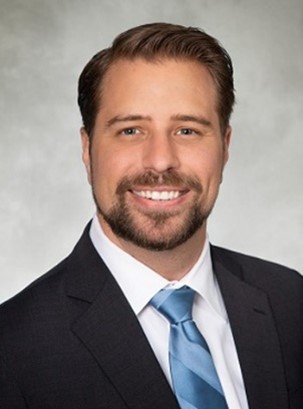Our Legal Advisory Committee (LAC) is made up of an exceptional mix of legal firms, in-house counsel, and forensic accountants, that works to understand the impact of new laws, regulations, and judicial decisions. During the first quarter of 2025, our Legal Advisory Committee (LAC) held three meetings where two case law reviews and three MCLE presentations were provided. We provided presentations on mediation, arbitration, and emerging Cal-OSHA issues.
We urge all member companies, particularly those with general counsel or legal professionals on staff, to join the LAC to network and address pertinent construction industry issues. Legal professionals of our contractor or specialty contractor members can now join the LAC for FREE! You must be a member of AGC of California as a contractor or specialty contractor to qualify. If you are interested in joining or learning more about the LAC, contact Mary Alyssa Rancier, Policy Manager, at rancierm@agc-ca-org.
January
MCLE: “Improving ADR in Construction Disputes”
Did you know that the Federal Arbitration Act was enacted 100 years ago? Over the last century, construction disputes have evolved where arbitration is now viewed often as the default forum for dispute resolution. In this presentation at the recent Legal Advisory Committee meeting, I discussed multiple ways to improve ADR in construction disputes.
To design an effective ADR program for a construction dispute, parties should carefully and thoughtfully prepare their dispute resolution provisions in their contracts. Creative use of the ADR process is also needed to keep the costs of e-Discovery/document exchange as well as legal and expert fees in check. The key issues to consider include:
- Selecting the right neutral
- Selection process for the neutral
- Amount and type of discovery
- Handling of discovery disputes
- Type of ADR process: Arbitration, Trial, or (in California) Judicial Reference (which is a great hybrid option that gives parties the right to appeal and requires application of the rules of evidence but otherwise operates very much like an arbitration).
The other key for effective ADR is proper preparation – of the lawyer, the client, the experts, the other side, and the neutral. It is critical to prepare up front a detailed analysis outlining the strengths and weaknesses of both your claim and the other side’s, including the documentation and witnesses that will support the issues. Start early and plan carefully for a successful resolution process for your construction disputes.
Brenda Radmacher, Seyfarth Shaw LLP

Brenda K. Radmacher is a partner at Seyfarth Shaw LLP in Los Angeles, focusing on construction law. With nearly 30 years of experience, she advises landowners, developers, contractors, and design professionals on risk management, contracts, and dispute resolution. Brenda handles construction disputes, defects, and insurance issues through negotiation, mediation, arbitration, and litigation. She has expertise in mechanic’s liens, payment disputes, and contract claims on public and private projects. A noted speaker and mediator, she also guides clients on innovative project delivery systems, including EPC, design-build, and P3, across sectors like renewable energy, infrastructure, healthcare, and multifamily housing.
Seyfarth Shaw LLP, with 900 lawyers across 18 offices, delivers top-tier advisory, litigation, and transactional services worldwide. Recognized as a 2024 Law360 Construction Practice Group of the Year, Seyfarth’s national construction team operates across key U.S. markets and globally, handling complex infrastructure projects, from airports to commercial developments. The team is renowned for its expertise in design-build procurement, public-private partnerships, and large-scale construction disputes. With a commitment to innovation and excellence, Seyfarth offers a unique blend of national reach and local insight, providing cutting-edge legal solutions for developers, contractors, and stakeholders in the construction industry.
February
MCLE: “How to Infuriate or Delight Mediators & Arbitrators”
The 2025 U.S. Construction Outlook is very strong, growing from $1.271 trillion in 2024 to $1.530 trillion in 2028 (A yearly increase of +12.5%). However, the Construction Industry is facing a very complex crisis:
- Skyrocketing project costs, slipping timelines, delays,
- Supply chain disruptions,
- Labor availability,
- Material shortages and tariffs (China, Mexico, Canada),
- 1,000+ job site fatalities, 6,000+ suicides, and
- The impact of the LA Fires.
Construction is dispute prone because each project is a startup has a unique design, an entirely new team of companies, and once chance to get it right.
We chose arbitrators seeking several key attributes: acceptance by the parties, industry knowledge, efficient use of time, fairness, etc. However, how do you get them on your side and keep them there? The big obvious ways to do that are 1) exceptional advocacy, 2) avoid gross mistakes & landmines, & 3) make it easy for the arbitrators to decide the case in your favor.
Once you have shown you are hyper-prepared and know what you are doing, please try to 1) make it easy for them to agree with you, 2) delight them, and 3) please do not infuriate them!
Delight
- Know the Arbitration Rules
- Cooperate, Cooperate, Cooperate…
- Timely and Prepared
- Comfortable in Arbitration
- Present Evidence to Panel
- Razor-Sharp Cross-Examination
- Write Brief Like an Award
- Narrow Any Attack on Award
Infuriate
- Interrupt Counsel, Witness, Panel
- Ad Hominem Attacks
- Swearing or Dog Whistles
- Object Endlessly on Minor Issues
- Contest Panel’s Decisions
- Make Oral Motions on Complex Issues
- Make Ex Parte Contact
- Chum Up to Panelists You May Know
- Skip Damages, Assume You Will Win
- Technical Difficulties
Ernest Brown, Project Neutral®

Ernest C Brown, Esq PE is CEO of Project Neutral®. He is a former Chair of the AGC Legal Advisory Committee. Ernie was Project Counsel for the Carquinez Bridge, the Oakland Connector, the Presidio Parkway, John Wayne Airport, and the Anaheim Arena. He has been a full time Mediator, Arbitrator, and Special Master since 2015,. He is a Graduate of MIT (CIvil Engineering) and UC Berkeley (MS Construction Management and JD Law). URL: ProjectNeutral.com Tel: (415) 3171708.
Case Law Review: “MVL USA, Inc., et al.. v. United States, Case No. 24-1057”
Court Strikes Down Federal Project Labor Agreement Mandate as Violation of Competition Requirements
A recent U.S. Court of Federal Claims decision has dramatically altered federal construction procurement, striking down the Biden administration’s Project Labor Agreement (PLA) mandate. In MVL USA, Inc. et al. v. United States, the court delivered a critical blow to blanket PLA requirements, mandating that federal agencies must justify PLAs through project-specific market research.
This groundbreaking ruling creates a new strategic environment for construction firms and attorneys. Contractors now have unprecedented opportunities to challenge PLA requirements that could limit competition or increase project costs. The decision effectively levels the playing field, allowing both union and non-union contractors to compete based on merit rather than labor affiliations.
For construction law professionals, this ruling introduces important considerations for federal procurement strategies. Attorneys and their clients will need to carefully document market research, understand project-specific requirements, and develop targeted approaches to addressing PLA mandates.
Alexander Verdegem, SMTD Law

Alex Verdegem is a third-year associate with SMTD Law, LLP, a boutique law firm located in Irvine, California that provides experienced and highly regarded legal services in construction, business, and surety matters. Alex is a graduate of Princeton University in New Jersey and Loyola Law School in Los Angeles. Since joining SMTD in October 2024, Alex has been a fierce advocate in and out of the courtroom, representing national construction companies and surety companies in state and federal court actions involving bid protests, construction delays, price escalations, statutory prompt payment actions, Miller Act claims, and indemnity agreement breach cases. Prior to joining SMTD, Alex represented and advised corporate clients and individuals on a wide range of business litigation matters, including partnership disputes, complex defense in lead and asbestos cases, OSHA administrative proceedings, construction defect cases, and California Environmental Quality Act (CEQA) compliance matters.
March
MCLE: “ Emerging Cal/OSHA Issues: Indoor Heat, Workplace Violence Prevention, and Enforcement”
There is a lot in store for Employers in 2025. This presentation was a general overview of new and continuing issues to be aware of from Cal/OSHA in the coming year. Topics included, but are not limited to, Indoor Heat, Workplace Violence, the new Egregious and Enterprise-wide proposals and the Severe Violator Enforcement Program.
Lisa Prince, The Prince Firm

Lisa Prince has represented employers in OSHA and Cal/OSHA matters for more than twenty years. Her firm, The Prince Firm represents employers ranging from Fortune 500 companies with thousands of employees in many states to local small businesses and every size in between. The firm focuses on all aspects of Cal/OSHA defense. including advocacy during rulemaking, compliance assistance, management of enforcement activity and appeal of citations. In addition to defense work, the firm helps employers, safety directors, risk managers, and human resource administrators to proactively reduce risk and develop preventive safety programs that comply with regulatory mandates.
Case Law Review: “Nabors Corporate Services, Inc. v. City of Long Beach (2025) 108 Cal.App.5th 540”
In Nabors Corporate Services, Inc. v. City of Long Beach et al. (2025) 108 Cal.App.5th 540, the Court of Appeal held that arbitration awards, later confirmed as judgments, fall within the definition of “court decisions” under California Labor Code section 1781. The Court of Appeal looked at the legislative history of Cal. Labor Code section 1781, which indicates the statute was enacted to protect subcontractors who incur prevailing wage deficiencies due to public agency actions. This decision clarifies that subcontractors can rely on arbitration awards as a basis for seeking indemnification, expanding their rights to relief in prevailing wage disputes.
While subcontractors may be entitled to indemnity for a faulty description of project work, subcontractors should still exercise extreme caution in evaluating whether a project is subject to prevailing wage laws. Thus, prudent subcontractors should ensure that bid specifications explicitly state whether prevailing wage laws apply, issue pre-contract RFIs to obtain a description of the work, and document all communications with the public entity and hiring party. Implementing these measures may enable a subcontractor to avoid unexpected prevailing wage conflicts completely.
Nathan Chow, Smith Currie Oles LLP

Nathan Chow is a first-year associate at Smith Currie Oles LLP. He focuses his practice on construction litigation and handles a range of issues, including delay claims, mechanics liens, and contract disputes. Nathan also assists in the discovery process, running technology assisted review of electronic databases to collect and produce information necessary for various matters.













































